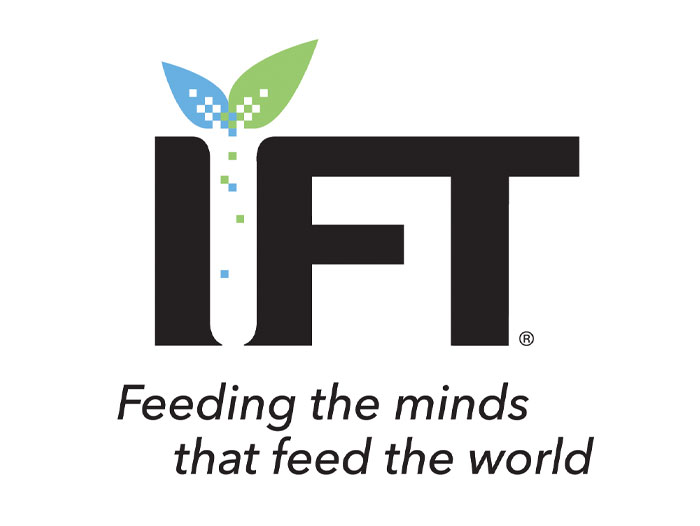IFT Virtual Workshop on Food Fraud Prevention Will Address Supply Chain Disruptions
March 25, 2025 | 7 min to read
The Institute of Food Technologists (IFT) is conducting a four-part virtual workshop titled “Food Fraud Prevention: Reducing Disruptions through Supply Chain & Enterprise Risk Management” from April 1 to April 10, focusing on food fraud vulnerabilities and compliance. Led by John Spink, participants will explore Global Food Safety Initiative standards, the Sarbanes-Oxley Act, and COSO-based ERM frameworks, aiming to enhance overall food safety and management practices throughout the food supply chain.

CHICAGO – The Institute of Food Technologists (IFT), a nonprofit scientific organization committed to advancing the science of food and its application across the global food system, is hosting a four-part virtual workshop on “Food Fraud Prevention: Reducing Disruptions through Supply Chain & Enterprise Risk Management.” Part of IFT’s new virtual workshop series, the four sessions will be held April 1, 3, 8, and 10, from 3:00 p.m. – 4:30 p.m. CDT.
The unique workshop will guide participants through the latest Global Food Safety Initiative benchmarked standards and a provide a deep dive into the Sarbanes-Oxley Act, which mandates certain practices in financial record keeping and reporting for corporations. The workshop will also cover COSO-based Enterprise Risk Management (ERM) frameworks, which are essential to providing a framework for assessing food fraud vulnerability throughout the supply chain and helping ensure food safety protocols are met across the entire enterprise.
Participants will also gain an overview of the following:
- Critical role food fraud prevention plays within broader supply chain management and risk management efforts
- How food fraud vulnerability assessments fit within the ERM framework
- Learn how exploring COSO-based ERM systems can streamline the identification and mitigation of food fraud risks, offering a structure approach for compliance
- Insights into resource-allocation decision-making
- Dive into practical applications for evaluating suppliers and learn more real-world examples and best practices to see how food fraud prevention strategies have been applied within organizations
“Food fraud is a billion-dollar problem for the global food industry, and as food fraud risks continue to threaten supply chains, addressing these challenges and disruptions has become a compliance requirement. This course, led by one of the leading experts on food fraud prevention, addresses a rare but potentially devastating food issue that all food companies cannot afford to miss,” said IFT Chief Science and Technology Officer Bryan Hitchcock.
The workshop is hosted by John Spink, PhD, Director of the Food Fraud Prevention Academy and Assistant Professor, Department of Supply Chain Management in the Business School at Michigan State University. His food fraud prevention research focuses on policy and strategy. He is widely published in leading academic journals and has helped lead national and global regulatory and standards activity.
Register for the workshop. IFT Premier members receive a 20% discount. To learn more about becoming an IFT member, email membership@ift.org.
IFT’s Journal of Food Science has created a content collection that includes some of the top scientific research examining the complexities of food fraud and measures to combat it.
The food fraud workshop is part of IFT’s extensive virtual workshop series in 2025 that includes:
- “GRAS Essentials for Developers & Formulators” (March 2025)
- “How AI is Reshaping Your Job and Plate: Are You Ready?” (April 2025)
- “Revealing Emerging Food Trends: Insights for the Global F&B Industry” (May 2025)
Five in-person workshops will take place at IFT FIRST: Annual Event and Expo this year, including one that expands on the food fraud prevention conversation – “NextGen Food Safety: Bridging Farm to Table with Smart Tech Solutions.” Early registration is now open.
About Institute of Food Technologists
Since 1939, the Institute of Food Technologists (IFT) has served as the voice of the global food science community. IFT advocates for science, technology, and research to address the world’s greatest food challenges, guiding our community of more than 200,000. IFT convenes professionals from around the world – from producers and product developers to innovators and researchers across food, nutrition, and public health – with a shared mission to help create a global food supply that is sustainable, safe, nutritious, and accessible to all. IFT provides its growing community spanning academia, industry, and government with the resources, connections, and opportunities necessary to stay ahead of a rapidly evolving food system as IFT helps feed the minds that feed the world. For more information, please visit ift.org.
